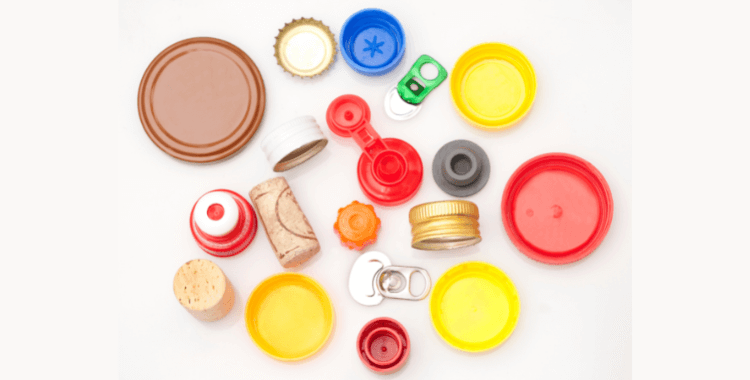
In the world of packaging, If you've heard the word "closure", it refers to the cap or lid that keeps the contents of the container in place and secure. Many kinds of closures are designed to be used depending on the product type and the key ingredients or distribution channels. In the case of consumer products, the design of closures is all about function. When choosing a closure to your product, you need to consider the needs of your target market. This article will discuss standard packaging terms associated with closures and the materials used.
Let's first take a look at the specifications for the closure. Sometimes you will see the closure dimensions as 24-400 or 28-410, for instance. The first part (the number 24 or 28, for example)) refers to the size in millimeters. The second (the 400 or the 410) refers to the actual end, the opening, and the threaded space of closure or container. The neck's length of the bottle, as well as the design of the threads, are different for each type of finish. A finish with a 400 will have only one turn of thread, while a 410 will contain 1.5 thread turnings, while the 415 finish has two narrow thread turns. A closure with 400 finishes will typically be used on a 410 finish container. However, it won't completely cover the length of the neck. For added assurance, make sure to check your options before purchasing.
Closed with continuous threads is the most commonly used type of closure used in packaging for consumer use. They are commonly used on food jars, creams, lotions, and household cleaners. A cap finishes the closure with threaded ridges that lock into the grooves of the container. Continuous thread caps can also be used to accommodate different kinds of containers.
Child-resistant caps are typically connected to products that may be harmful to children, including household cleaners and prescription medicines. The closures are designed to stop youngsters under five from opening containers themselves. Products like eye drops, mouthwashes, prescription medications, eye drops, and other medications available over the counter must be packaged in this manner.
Dispensing closures are an essential element of packaging due to the advantages they offer to the customer. These closures have been designed to permit an exact quantity of product consumed by the user, thus eliminating waste items. Dispensing closures are also sealed, which prevents the possibility of leakage and extends the shelf longevity.
Unfortunately, there are situations where a product may be damaged because the package was altered. Tamper-proof closures keep your product safe from being damaged. These closures provide enhanced security and permit consumers to quickly determine if the packaging is damaged or if the product was tampered with.
Glass bottles for wine, spirits and other beverages such as vinegar generally feature a distinct bar top closure that acts as a pressure seal. The closure is made to be airtight to keep the product from exposure to oxygen and prevent the evaporation of wine, spirits, or other high-proof items. The closures are constructed of premium plastics, metals, and cork. They can withstand the force and pressure created during closing and sealing. They can help your product look more appealing to the consumers.
We'll now look at typical materials that are used in closures. Your packaging needs may require the use of polypropylene (PP). It is a solid and rigid plastic with excellent chemical resistance and dimension stability. They are also solid and economical. Closures made of PP are commonly used across all industries, including nutraceuticals, personal care, chemicals, pharmaceutical, foods, and beverages. Closures made of polyethylene (PE) are resistant to chemical attack and provide an easy seal and opening. Another plastic commonly used to make closures is Phenolic. It is the general name for Phenol-formaldehyde thermosetting polymer. The resin, which is also known as Bakelite, is very robust and can be used to make only black closures. Phenolic closures have a wide selection of compatibility with various chemicals and are the most temperature-tolerant plastic closures.
It is important to understand the functions of each closure and their types before opting for your product. At Metro International, we have a broad range of closures such as drum closures, plastic closures for food, plastic bottle closure, closure caps, closures for juice, plastic closures for chemicals, plastic closures for chemicals, and detergents, etc. Contact us, and we will help you with the best quality of product closures.
